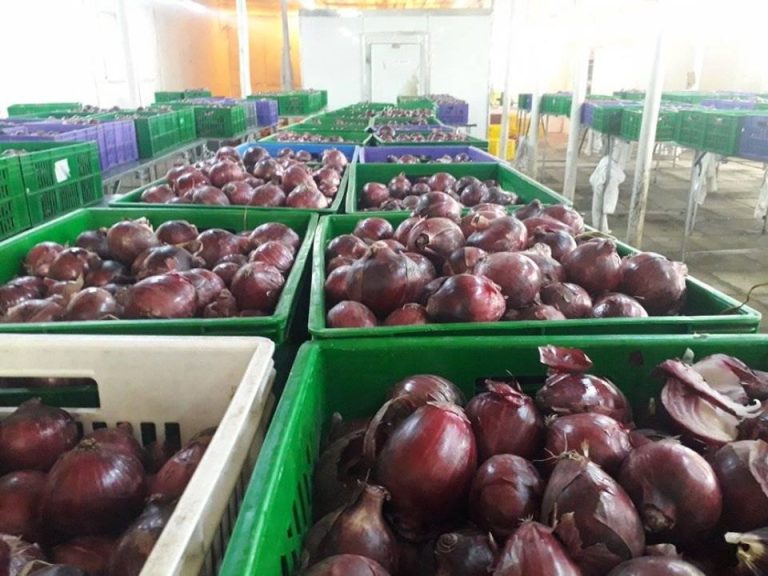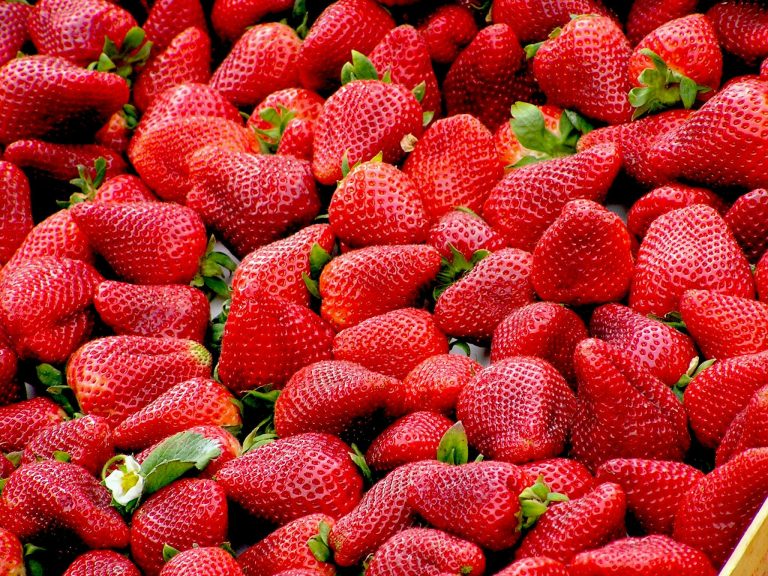INTRODUCTION
Imagine walking into a supermarket in Nairobi, scanning the fresh produce aisle, and noticing that organic vegetables are flying off the shelves faster than conventional ones. A decade ago, organic food was a niche market, mostly limited to health-conscious expatriates and a handful of affluent Kenyans. Today, it’s a booming industry, fueled by rising consumer awareness and shifting dietary preferences.
Kenya’s organic food market is expanding at an unprecedented rate, with demand growing by over 20% annually. As urban professionals become more health-conscious, they are willing to pay premium prices for chemical-free, naturally grown food. This shift has created a lucrative investment opportunity for entrepreneurs, agribusiness investors, and farmers alike.
But why is now the best time to invest? The market is still in its early stages, meaning that forward-thinking investors have a chance to position themselves as industry leaders before the sector becomes saturated. With strategic planning, organic farming is no longer just a rural subsistence activity—it’s a scalable, profitable venture that can generate significant returns.
This article explores why organic farming is one of the most promising agribusiness opportunities in Kenya today, beginning with the key driving force behind this trend—the growing market demand for organic food. In additional, find out how Fincare Investments Limited plays a crucial role in agribusiness by facilitating land access through leasing or purchase, enabling farmers to engage in high-yield crop production.
THE GROWING MARKET DEMAND FOR ORGANIC FOOD IN KENYA
Kenya’s food industry is shifting as more consumers prioritize health over cost. Urban families and middle-class professionals are increasingly seeking organic, chemical-free foods to combat lifestyle diseases like diabetes and hypertension.
Why Organic? The Health & Lifestyle Shift
Rising health concerns are driving demand for organic food. Take Christine, a Nairobi accountant—after a high cholesterol warning, she switched to organic vegetables, hormone-free dairy, and free-range eggs. Her improved health mirrors a broader trend, pushing supermarkets like Carrefour, Naivas, and Chandarana to expand organic sections.
THE BUSINESS OPPORTUNITY: WHO’S BUYING?
✅ Urban Professionals & Families – Willing to pay 30-50% more for organic food.
✅ Hotels & Restaurants – Demand high-quality organic ingredients for farm-to-table menus.
✅ Supermarkets & Organic Stores – Rapidly expanding organic sections.
✅ Export Markets – Kenyan organic produce is in demand in Europe, the UAE, and Asia.
With demand surging, now is the time to invest in organic farming.
HIGH PROFIT POTENTIAL: HOW INVESTORS CAN MAKE MONEY
Organic farming is no longer just a passion—it’s a thriving, high-profit industry. With rising demand, investors can tap into various lucrative models:
✅ Small-Scale Farming: Growing high-demand organic vegetables and herbs on an acre can generate Ksh 500,000–1M annually.
✅ Commercial Production: Large farms supplying supermarkets and processors benefit from economies of scale and steady demand.
✅ Value Addition: Processing organic produce into juices, dried fruits, or herbal teas significantly boosts profit margins.
✅ Exports: Kenyan organic avocados, coffee, and herbs fetch premium prices in Europe and the Middle East. A five-acre avocado farm can earn over Ksh 2M per harvest.
Investors can mitigate risks through organic certifications, technology, and diversification. With strategic planning, organic farming offers sustainable, long-term profitability.
THE FARM-TO-TABLE TREND: DIRECT SALES & BRANDING
As demand for organic produce grows, Kenyan farmers are embracing the farm-to-table model—cutting out middlemen, boosting profits, and building strong customer relationships.
Why Farm-to-Table?
✅ Higher Profits – Farmers earn 30-50% more by selling directly.
✅ Quality Control – Ensures fresh, chemical-free produce.
✅ Customer Loyalty – Direct engagement fosters repeat business.
Profit Potential
- Organic vegetable farms using social media earn Ksh 300,000–500,000 monthly.
- Subscription-based produce deliveries generate Ksh 1M+ annually.
- Nairobi’s organic food hubs report 30-40% annual growth.
Success Strategies
✅ Leverage Digital Marketing – Use WhatsApp, Instagram, and e-commerce.
✅ Offer Convenience – Home delivery & subscription models.
✅ Brand Strongly – Packaging & storytelling matter.
Now is the time to tap into this thriving market—turning small farms into profitable organic brands!
CHALLENGES & SOLUTIONS IN ORGANIC FARMING
While organic farming is highly profitable, it comes with challenges that require smart solutions:
✅ High Certification Costs – Organic certification is expensive. Solution: Farmers can join cooperatives for group certification, seek government subsidies, or start with local certifications like KOAN before expanding internationally.
✅ Market Access & Consumer Awareness – Finding premium buyers can be difficult. Solution: Use direct-to-consumer sales (social media, farmers’ markets, e-commerce) and educate consumers on the health benefits of organic produce.
✅ Post-Harvest Losses & Supply Chain Issues – Organic produce is highly perishable. Solution: Invest in solar-powered cold storage, affordable packaging, and value addition (e.g., dried fruits, organic juices) to extend shelf life.
✅ Pest & Disease Control – Avoiding synthetic chemicals makes pest management tough. Solution: Implement Integrated Pest Management (IPM), crop rotation, and organic composting.
✅ Scaling & Financing – Growth requires capital. Solution: Seek grants, impact investors, and cooperative funding to expand operations.
By addressing these challenges, organic farmers can build sustainable and profitable agribusinesses.
STEPS TO START YOUR OWN ORGANIC FARMING INVESTMENT
Transitioning from farm-to-table strategies, launching an organic farming investment requires careful planning. Here’s a step-by-step roadmap:
- Choose the Right Crop/Product – Align with market demand. High-value crops include avocados, passion fruits, herbs, and leafy greens.
- Secure Land Strategically – Peri-urban areas like Kiambu and Kajiado offer accessibility and market proximity. Leasing is cost-effective for startups.
- Learn Organic Farming Methods – Attend KOAN workshops, follow YouTube tutorials, and network with experienced farmers.
- Obtain Organic Certification – Certification (KEBS, KOAN) boosts credibility and expands market access. It requires soil testing and adherence to organic standards.
- Develop a Sales Strategy – Sell directly via social media, farmers’ markets, and partnerships with organic stores.
CONCLUSION: WHY NOW IS THE RIGHT TIME TO INVEST
Kenya’s organic farming industry is at a turning point. As consumers grow more health-conscious, demand for organic produce is surging—creating a lucrative opportunity for forward-thinking investors. The farm-to-table trend isn’t just a passing phase; it’s a movement reshaping the agricultural landscape.
Take, for example, John Mwangi, a former office worker who transitioned into organic vegetable farming in Kiambu. By tapping into direct sales and strategic partnerships with health-conscious consumers, his farm now earns triple what he made in employment. Stories like his prove that with the right strategy, organic farming is not just sustainable—it’s highly profitable.
Whether you’re starting small with a few acres or launching a commercial venture, the time to act is now. Kenya’s growing middle class, rising export potential, and government support for organic agriculture make this a golden opportunity. Don’t wait—start your organic farming investment today and be part of the future of agriculture!
HOW FINCARE INVESTMENTS LIMITED SUPPORTS AGRIBUSINESS ENTREPRENEURS
Land Leasing and Sales for Agribusiness
Access to land is a fundamental requirement for any successful agribusiness venture. Fincare Investments Limited provides Agribusiness Entrepreneurs with affordable land options for leasing or purchase, enabling them to establish and expand their agricultural enterprises.
By partnering with Fincare Investments Limited, agripreneurs can secure land in strategically located agricultural regions such as Isinya, Kajiado County, Kenya—an area well-suited for crop cultivation and livestock farming. With access to prime agricultural land, entrepreneurs can maximize productivity and create successful businesses
FREQUENTLY ASKED QUESTIONS (FAQS) ON ORGANIC FARMING INVESTMENT
1. Is organic farming profitable in Kenya?
Yes, organic farming is highly profitable due to the growing demand for chemical-free food. With rising health awareness, consumers are willing to pay premium prices for organic produce.
2. How much land do I need to start an organic farm?
It depends on your goals. Small-scale farms can thrive on as little as a quarter-acre, while commercial ventures may require several acres. Land selection should consider soil quality, water access, and market proximity.
3. How do I get organic certification in Kenya?
You can apply through KEBS (Kenya Bureau of Standards) or KOAN (Kenya Organic Agriculture Network). The process involves farm inspections, adherence to organic standards, and documentation.
4. What are the best organic crops to grow in Kenya?
High-demand crops include organic vegetables (kale, spinach, tomatoes), fruits (avocados, bananas), and herbs (mint, basil). Market research helps identify the best option for your location.
5. How can I market my organic produce?
You can sell through farmers’ markets, supermarkets, online platforms, and direct farm-to-table partnerships. Branding and social media marketing also help attract health-conscious buyers.







